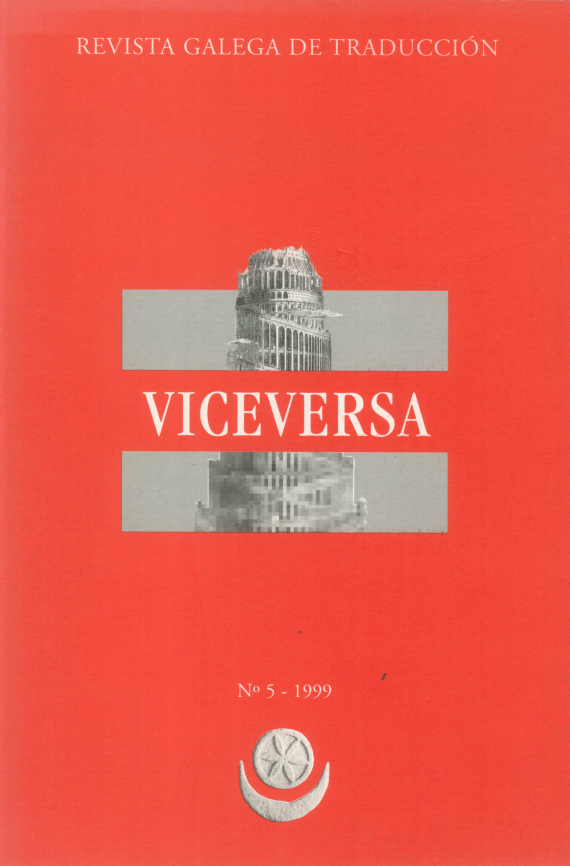Escribir e traducir na periferia: o caso de Dubliners de James Joyce en galego
Palabras clave:
Joyce, Dubliners, Nationalism, MinoritiesResumo
The majar thrust of this article is an analysis of the response, articulated in translation terms, from minority language traditions such as Galician to the thematic and stylistic challenges set up by James Joyce's first major work of fiction, the short story collection 'Dubliners' . This analysis draws clase para- llels between the condition of 'Galego' as a minority language in a Peninsular context in which Castilian is perceived as the articulation of a 'centralist' linguistic and political hegemony, and the condition of the Irish language, the articulation of a geographically peripheral community forced to adopt English as the 'proper' vehicle for public, and artistic, expression.
I argue that the language tensions latent in both communities, Galicia and Ire- land, underlie a series of other tensions, particularly for politícal and cultural Nationalism, that set up empathies readily perceived in the manner in which the 'Galego' translation of this particular Joycean text addresses the challenge of mediating Joyce's poetics —a manner readíly perceived, by contrast, to be markedly lacking in contemporary Castilian responses. The response to this challenge is ultimately seen to enhance the domestic literary canon in Galicia via translation, and to vindicate Joyce's response to the acknowledged 'ambiguities' of writing in English as a foreign' language.



